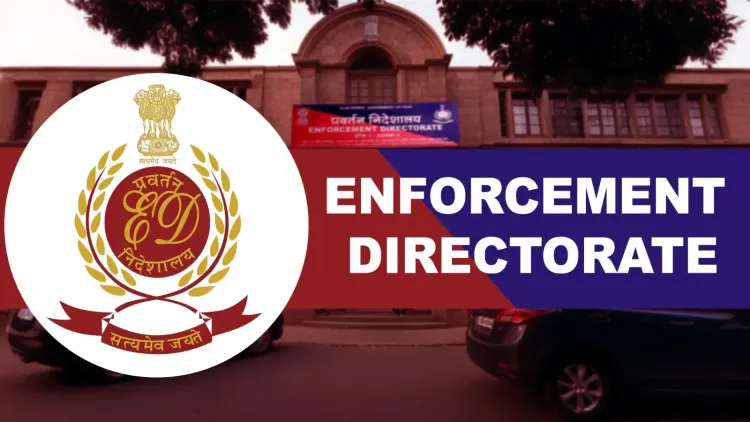Did ED Uncover a Rs 30 Crore Marriage Scheme Scam in MP?

Synopsis
Key Takeaways
- ED's crackdown on a major financial fraud.
- Involvement of government officials in the scam.
- Embezzlement of Rs 30.18 crore through a welfare scheme.
- Need for robust safeguards in public welfare programs.
- Ongoing investigations to uncover more details.
Bhopal, Oct 7 (NationPress) In an extensive operation targeting financial misconduct, the Directorate of Enforcement (ED) in Bhopal executed search warrants on October 3 at seven sites across Bhopal, Vidisha, Katni, and Chhatarpur districts.
The raids were conducted under the Prevention of Money Laundering Act (PMLA), 2002, focusing on Shobhit Tripathi, the former CEO of Janpad Panchayat Sironj, along with his alleged associates, as stated by the ED.
The operation resulted in the confiscation of critical documents, electronic devices, and the freezing of bank accounts and mutual funds amounting to Rs 21.7 lakh associated with Tripathi and others.
The ED's inquiry is based on a report lodged by the Economic Offense Wing in Bhopal, citing multiple sections of the IPC, 1860, and the Prevention of Corruption Act, 1988.
Tripathi is alleged to have masterminded a significant embezzlement scheme totaling approximately Rs 30.18 crore through the Madhya Pradesh government's Marriage Assistance Scheme from 2019 until November 2021.
This initiative, intended to assist families of registered construction workers, was reportedly misused by Tripathi alongside data entry operators Yogendra Sharma and Hemant Sahu.
According to the ED's findings, the trio fabricated documentation and submitted fraudulent information to the government portal, facilitating the transfer of funds to ineligible recipients.
These funds were subsequently withdrawn in several installments via ATMs and redirected to accounts belonging to Tripathi, his family, and associated entities.
To obscure the illicit nature of the funds, Tripathi allegedly funneled the proceeds through relatives' bank accounts and various business ventures, presenting them as legitimate income.
The laundered money was utilized for personal spending, stock market investments, mutual funds, and the purchase of real estate. This case emphasizes the weaknesses in welfare schemes and the pressing need for stringent digital protections.
The ED's decisive action reflects its dedication to combating corruption and financial crimes in public administration.
Ongoing investigations are expected to unveil further details as authorities delve deeper into the intricate web of transactions and beneficiaries linked to the scam.









